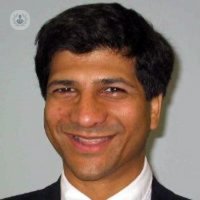Adult ADHD: how does it affect behaviour?
Autore:In adults as opposed to children, ADHD presents as a syndrome of extremes. In addition to inattention there is hyper-focusing, which is when an emotion is attached to a task at hand. There is both procrastination and impulsivity; hyperactivity and hypoactivity; disorganisation and perfectionism. The main feature of adults with ADHD is their variability.
Leading London psychiatrist Dr Utpaul Bose explains how adult ADHD presents in both men and women and the negative effects that it can have on people’s behaviour if left untreated.

How does ADHD affect people’s behaviour?
Adult ADHD is not predominately a behavioural disorder as opposed to childhood ADHD. Not all people with ADHD suffer from temper outbursts. In fact, some spend all of their mental energy trying to control their tempers, with the odd occasional leakage. When temper outbursts do occur, they are usually because of frustration due to impatience like missing a train or the person in front of them spending too long in a queue.
Does ADHD have a negative effect on people’s behaviour?
Individuals with ADHD are impulsive; that is they prefer smaller immediate rewards rather than larger long term benefits. Therefore they have financial difficulties, problems organising themselves and with household tasks such as running a family. They are also particularly prone to compulsive behaviours, which can range from shopping, masturbating, knitting exercises and risk-taking behaviours such as gambling, extreme sports, risky sex, risky driving (speeding) and shop lifting. Some of them self-medicate with illegal drugs.
How can ADHD be managed?
This can be managed with ADHD medication, life coaching or cognitive behavioural therapy (CBT). The benefits of treatment for ADHD are often much more dramatic than other psychiatric disorders.
Does ADHD present differently in men and in women?
There is a trend amongst women for more internailising symptoms such as anxiety, depression and low self-esteem. However, these symptoms can be very prominent amongst men and there are also many women who are sensation seeking risk-takers.
How do you assess someone for adult ADHD?
As children cannot tell you how their brain works, childhood ADHD is diagnosed based on their behaviours. General adult psychiatrists, however, use the mental state examination to diagnose mental disorders. It is therefore appropriate not to use specialised checklists that were designed for children but to diagnose it primarily on the way the individual describes their mood, thinking, behaviours and sleep.
Do not hesitate to book an appointment with Dr Bose if you are concerned that you have adult ADHD.



